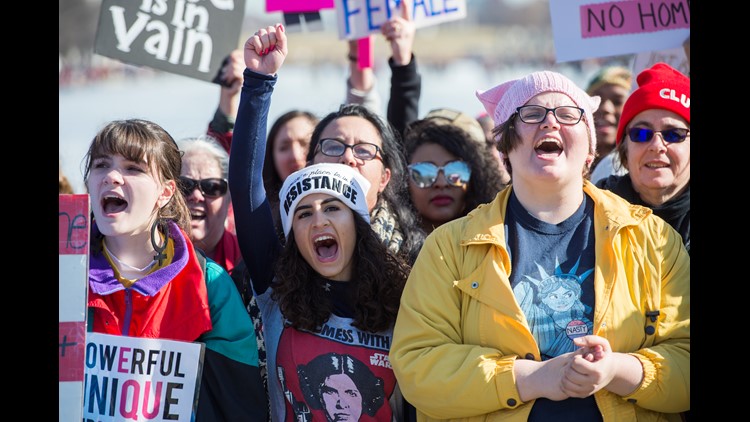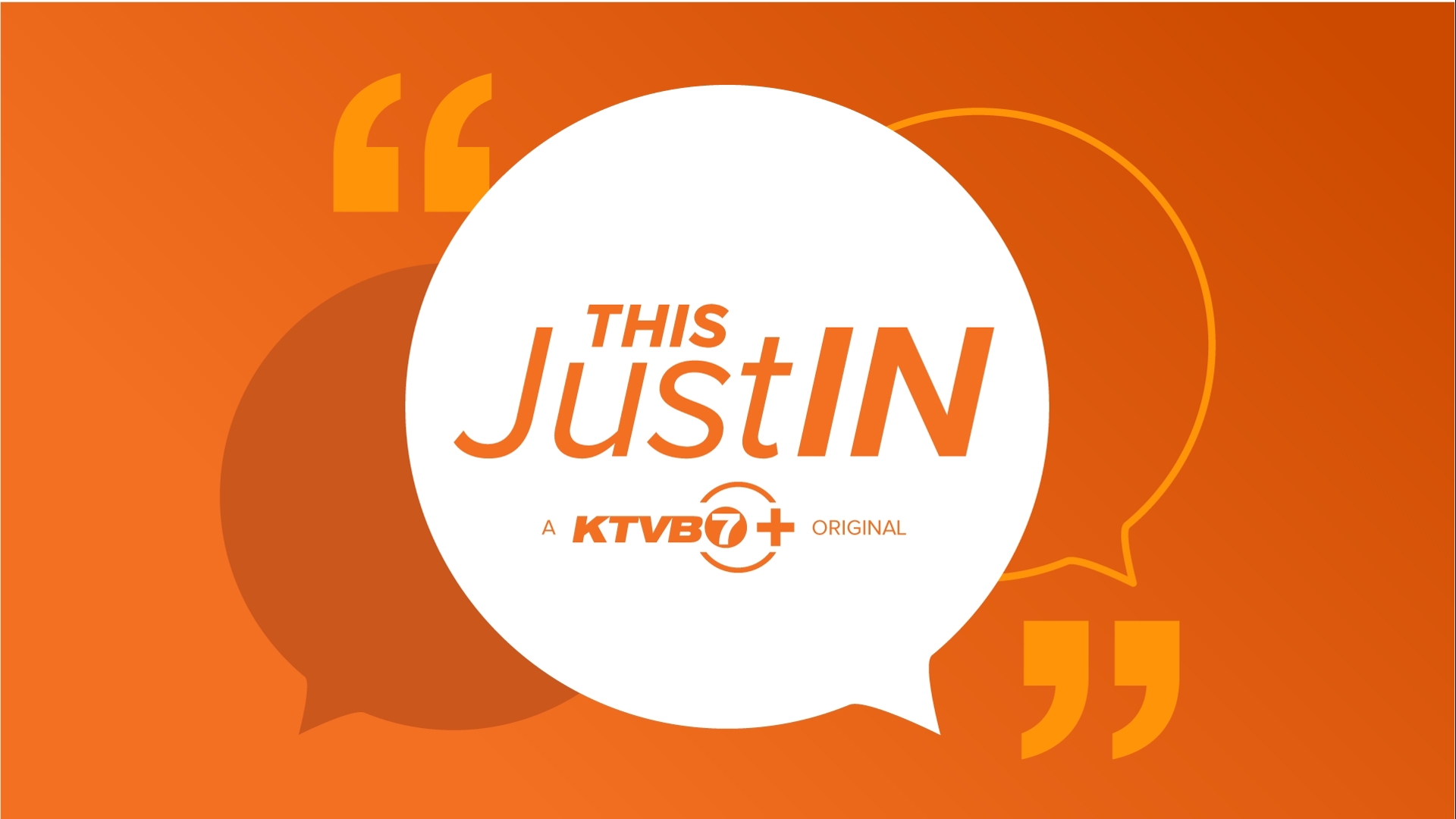Hundreds of thousands of marchers flooded streets across the country Saturday to criticize President Trump, vowing to protect women’s rights, the environment and American ideals of free speech, religious freedom and tolerance.
From Boston to Denver to Reno, and at the nation’s capital where Congress struggled to restart the federal government, marchers waved signs and chanted “This is what democracy looks like!” The marches, held in hundreds of cities and towns across the country, came a year after the inaugural Women’s March and Trump’s swearing in.
Wearing the now-familiar pink pussy hats — which this year were available in a rainbow of colors to be more inclusive to all races — women and their families promised to use their votes to shift the course of American government during the mid-term elections this year.
In Denver, Betsy Kidnay, 56, carried a sign declaring that “women are the wall” as she marched with friends.
“Hopefully, we are going to stop Trump,” said Kidnay, of Wheat Ridge, Colo. “His disregard for women is what’s going to sweep Republicans out of power.”
Trump ignored the marchers’ criticism, and in a Tweet cast their rallies as victory marches to mark a booming economy and declining unemployment among women. His Twitter comment drew eye rolls from marchers.
Hillary Clinton added her voice to those of the marchers, tweeting that while the 2017 rallies were a "beacon of hope and defiance...," the 2018 marches were "testament to the power and resilience of women everywhere. Let’s show that same power in the voting booth this year. #PowerToThePolls."
And Canadian Prime Minister Justin Trudeau, tweeting in both English and French, called the rallies "incredibly inspiring and motivating," adding, "We see you, we hear you..."
Marchers took to the streets in Oklahoma City; Logan, Utah; Asheville, N.C.; Chicago; Seattle, Dallas, Los Angeles; and Houston, as well as in Beijing; Buenos Aires; Nairobi; and Rome, under the banner of the #WeekendofWomen on social media. Other large events were planned for Sunday.
In Washington, D.C., the rally began at the reflecting pool in front of the Lincoln Memorial in brisk, 50-degree weather under clear skies.
Marchers turned up with a forest of creative signs, ranging from the humorous to the vulgar. One said simply: "Grab Him by the Mid-terms." Others expressed support for health care, immigration and reproductive rights.
Organizers said the goal was to solidify the movement and use that clout in 2018 elections, which could shift the balance of power in Congress. In Virginia's statewide races last year, women turned out in huge numbers at the polls and on the ballots as Democrats made gains in state legislative races.
Brianna Gallina, 22, from Holtsville, N.Y., attended the New York City march, organized by the Women’s March Alliance, with her younger sister. Gallina said her schedule didn’t allow her to march last year, but this year she vowed not to miss it.
Before she left for her train into the city, her father, who voted for Trump, asked her why it was so important she march.
“It’s because I want equality. That’s what this is about,” she said. “This isn’t about women or fascism or whatever else you want to blow this into. This is about equality.”
In Leonia, N.J., rallygoers included Kristy Bortnik, who became a citizen shortly before the 2016 election and was able to vote then for the first time. She felt “devastated” at that time.
“I spent many years not having a voice, so to see all the craziness and just sit back and not do anything didn’t seem right,” Bortnik said.
Many marchers expressed their commitment to American ideals and said it is the president himself who is un-American, criticizing his administration’s approach to the environment, health care, immigration reform and taxes. They argued Trump represents old ways of thinking that largely benefit white men and large corporations, instead of building an inclusive society where everyone is welcome.
“Last year, I was angry,” said Denver marcher Anya Chavez, 14, who came with her younger sister and parents. “Today I’m feeling empowered, feeling really good. I feel good because I’m making a difference.”
In Los Angeles the march drew celebrities and ordinary people alike.
“I’m here because I have a wife, I have a beautiful daughter. And I just believe 100% we need to do better for women,” said Dan Griffin, 45, a consultant from Culver City who attended with both his wife and daughter. “If we do better for women, we do better for men.”
Across the country, marchers were overwhelmingly white, although organizers said they made stronger efforts this year to connect with communities of color and pushed to register voters.
"White women need to talk to other white women," said Norma Balentine of Milwaukee, an African-American voting rights advocate participated because of the emphasis on voter registration. "They need to talk to them about why they vote against their own interests, why they vote for people like Trump and Moore. It's disturbing," she said.
Several white women said they want to be stronger allies who will lift the voices and experiences of women of color. Molly Grupe of Monona, Wis., and Sarah Bayrd of Minneapolis were two of them. The sisters stood, arms around each other, surveying the sea of pink and posters below in Milwaukee
"It's all women or no women," said Bayrd.
Her sister Grupe is a Monona city council candidate who wants to see that change.
"A lot of women felt left out by the women's march last year," said Grupe. "We don't thrive without women of color."
Contributing: Doug Stanglin in McLean, Va.; Donna Leinwand in Zurich; Alia Dastagir in New York; Andrea Mandell in Los Angeles; Annysa Johnson of the Milwaukee Journal Sentinel.



